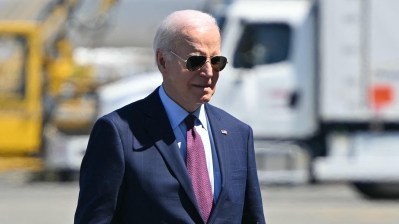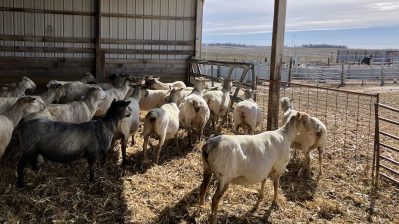
Working toward an economy that meets everyone’s needs

Over the last four decades, America’s approach to economics remained largely unchanged. Across both sides of the political aisle, neoliberalism increasingly became the dominant economic framework that shaped public policy. Yet the ideological model has sparked sharp criticism around its effectiveness in leading to economic stability, as well as its role in widening inequality. The debate has led many to reimagine the American economy and put forth an alternative blueprint for the future.
Enter the concept known as the Overton window — the range of policies that the public is willing to consider and accept. It explains how once-dismissed “pie in the sky” ideas become mainstream. The Overton window widened after the 2008 financial collapse when many questioned and challenged the status quo. The paradigm shifted again during the COVID-19 public-health crisis as politicians rushed to create measures that would provide people with much needed aid.
As the country slowly transitions into life after the peak of the pandemic, the question remains whether another shift in the Overton window is on the horizon. Natalie Foster, President of the Economic Security Project, is one of leading architects behind a new economic policy who believes so. She is the author of the recently published book, “The Guarantee: Inside the Fight for America’s Next Economy.”
“Marketplace Morning Report” host David Brancaccio spoke with Foster about the feasibility of the economic framework, and how close it is to becoming a reality. The following is an edited version of their conversation.
David Brancaccio: So, not a time for incremental thinking?
Natalie Foster: Indeed. Not a time for incremental thinking. We live in a moment where four out of 10 Americans can’t pull together $400 in an emergency. People are stressed out. They are overworked. The economy isn’t working for so many people. It’s a time for reimagining what the economy could do.
Brancaccio: You’re still thinking so boldly, given all the borrowing this government has recently done? All that debt and a Congress that can’t seem to agree on hardly anything?
Foster: These ideas are no longer pie in the sky. We have seen, for example, the government mobilize the National Guard to put free vaccines in people’s arms. That is a healthcare guarantee. We have seen movement toward a guarantee of higher education or college, as billions of dollars of student debt have been cancelled by the government.
Brancaccio: But a guarantee, that’s a dramatic word. Sounds radical.
Foster: Guarantees however are foundational to capitalism. In this country, we guarantee things like patent rights and the monetary system to ensure businesses work and America. So I’m arguing we should extend those guarantees to everyday Americans who are building the economy from the ground up.
Brancaccio: Another idea you talk about in the book, it’s not your idea, but it’s called baby bonds. What is this? An allocation when someone gets born that you can draw on when you get older?

Foster: A baby bond is a guaranteed inheritance. It is a trust fund established at birth for every child in this country, regardless of race, religion, or zip code. It allows the child to pursue education, to start a business, to buy a home when they turn 18. It really gives the kid choices. It’s like seed capital for the future, and it starts to take a bite out of the racial wealth gap while setting all our kids up to be able to thrive as adults.
The exciting thing about baby bonds is that they’re being tested and tried right now. The state of Connecticut has passed it. Washington, DC [and] California. The idea has moved from white papers to real examples across the country in the laboratories of democracy.
Brancaccio: You don’t worry that strengthening these programs encourages inertia that if we have this floor, it robs us of ambition.
Foster: I find it’s the exact opposite. What robs us of ambition is working three jobs to put food on the table or to pay rent. During the pandemic, when we invested in families, when we sent stimulus checks and the expanded Child Tax Credit, people had more money in their pockets. It was the first time in decades we saw a 24% increase in small business creation in this country. When people have the economic security, people work harder and people are able to take risks and develop out the ingenuity that we know exists across America but the opportunity is much more uneven.
There’s a lot happening in the world. Through it all, Marketplace is here for you.
You rely on Marketplace to break down the world’s events and tell you how it affects you in a fact-based, approachable way. We rely on your financial support to keep making that possible.
Your donation today powers the independent journalism that you rely on. For just $5/month, you can help sustain Marketplace so we can keep reporting on the things that matter to you.

















